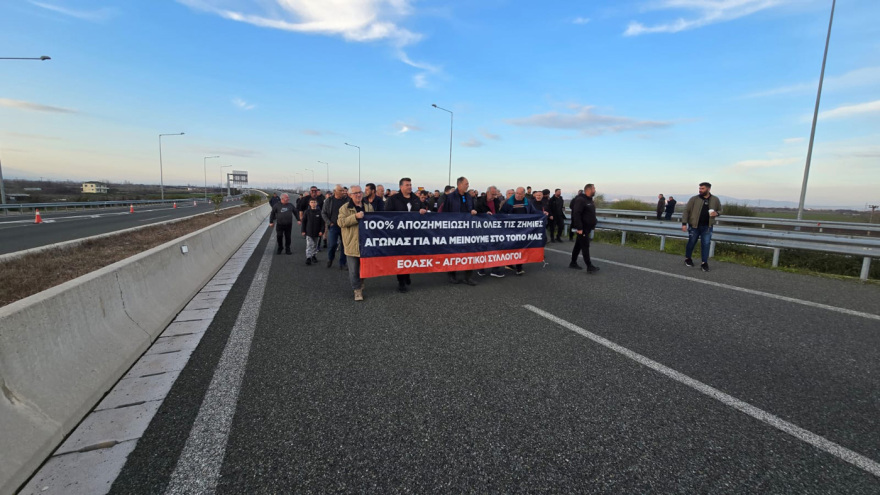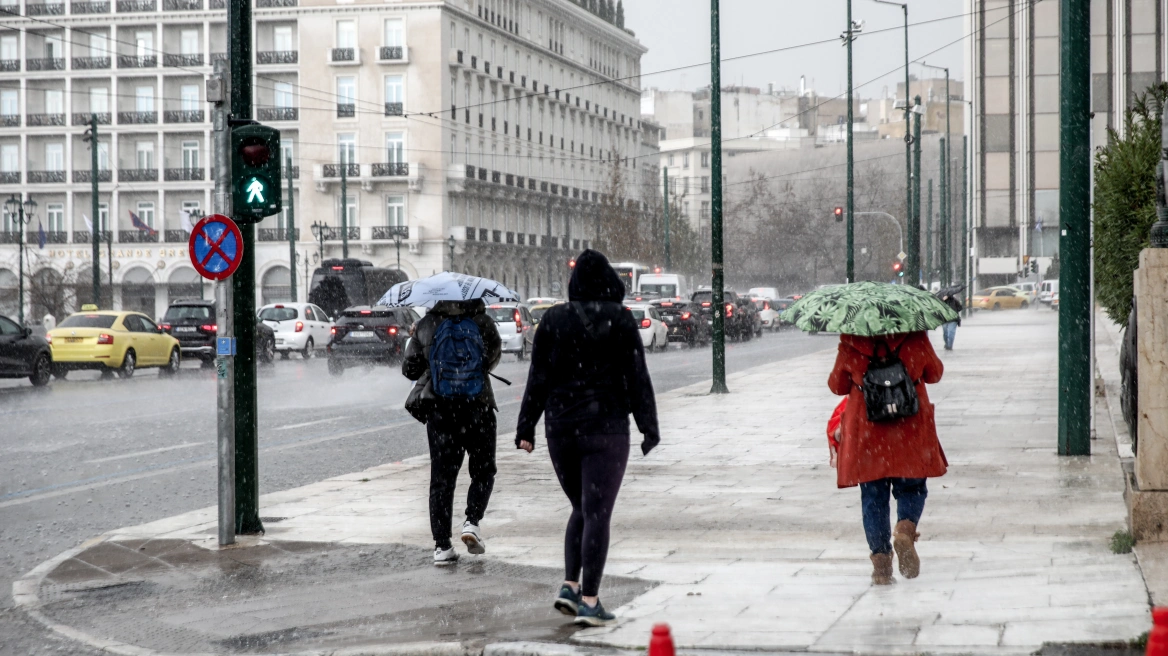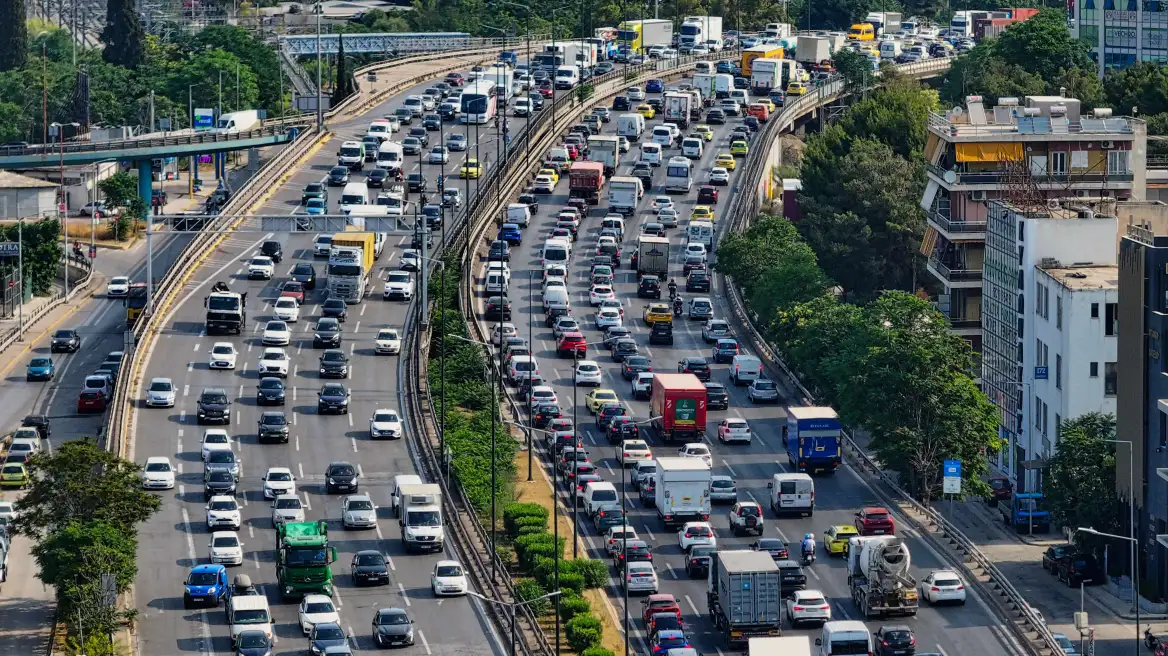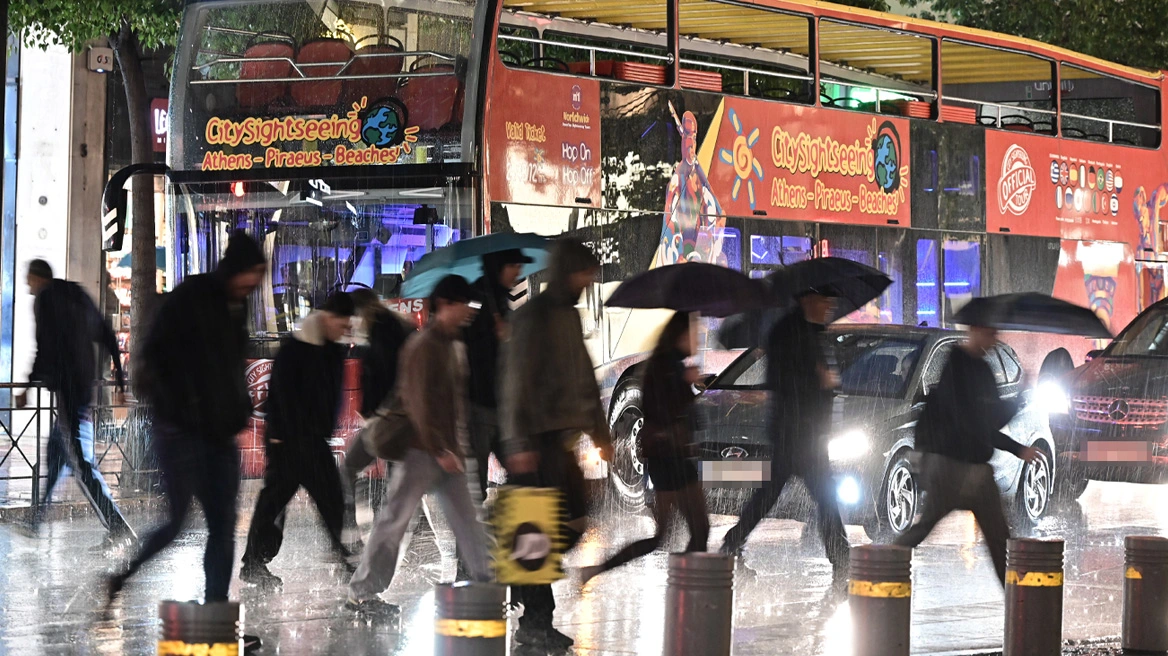The farmers’ protests continue today. Earlier, farmers blocked the E65 junction in Karditsa to hold an assembly.
Police forces are present at the site.
“We want to peacefully hold our assembly and send a message to the government that problems can only be solved through action,” one protester told a police officer.
Farmers Block the E65




Tractors in Pella and Kilkis
For the second consecutive day, farmers with their tractors remain on roadsides and in squares in two regional units of Central Macedonia.
In Pella, farmers are gathered at the Gypsohori junction with 19 agricultural vehicles. In Kilkis, tractors are stationed at four different locations. At the Polykastro stadium, there are 20 tractors, 9 in the square of Evropos, and 3 in the square of Toumba.
According to reports, farmers are in continuous discussions about whether and how to proceed with further actions. However, as of now, they have not blocked roads or disrupted traffic.
Roadblocks and Protests – Farmers’ Demands
During last year’s protests, key demands included the reinstatement of the Special Consumption Tax refund on agricultural fuel and lower electricity prices.
Following instructions from the Prime Minister, Kyriakos Mitsotakis, the government met with farmers’ representatives and legislated the permanent refund of the tax for full-time farmers (it had been abolished in 2016) and the inclusion of all professional farmers in the lowest electricity tariff, at a cost of €0.093 per kilowatt-hour.
Compensation for Lost Income
This year, farmers and livestock breeders prioritize compensation for lost income due to reduced production caused by the climate crisis. This demand is not new, as olive growers first raised it following the poor harvest of 2023, a year when olive oil prices skyrocketed due to low yields.
“With 7,910,007 hectares declared in the OGA (Greek Agricultural Insurance Organization) corresponding to over 210 million trees, even minimal support for olive producers at €10 per tree would require the Greek state to allocate over €2.1 billion,” sources familiar with the matter told the Athens-Macedonian News Agency.
A Total of €4.7 Billion Needed
And it’s not just olive cultivation—many crops have been affected by the climate crisis. From cotton, corn, vineyards, and wheat to alfalfa, pistachios, almonds, apples, figs, various legumes, and sheep and goats, producers have seen their incomes dwindle.
Farmers in the Streets: Protests Across Greece Over High Production Costs and Natural Disasters
Based on the cultivated hectares (as per the 2023 OGA declarations) for the 20 products for which farmers at the roadblocks demand income compensation, the total amount the government needs to allocate exceeds €4.7 billion, according to calculations by the Ministry of Rural Development and Food. This figure is based on the minimum compensation amount requested by producers.
However, the same sources noted, “If the government compensates one product, it will have to compensate all products for which similar requests have been submitted,” emphasizing that “the €4.7 billion figure is astronomical and beyond what the country’s economy can bear. No European country, not even Greece, could handle such an expense.”
Ask me anything
Explore related questions





